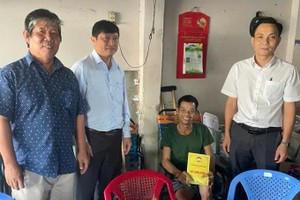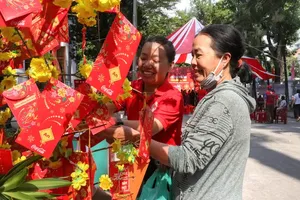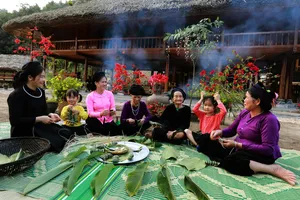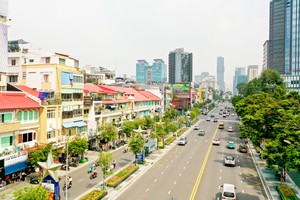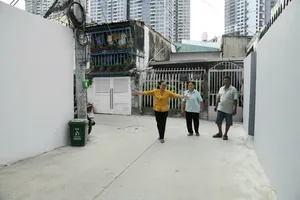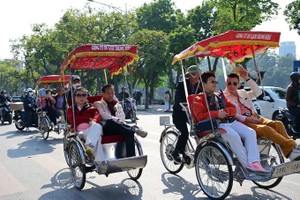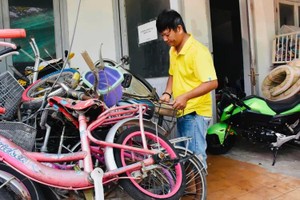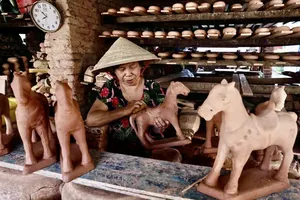After 136 days of coordinated implementation, the province has completed the reconstruction or replacement of 4,411 substandard homes, bring joy and relief to tens of thousands of residents.
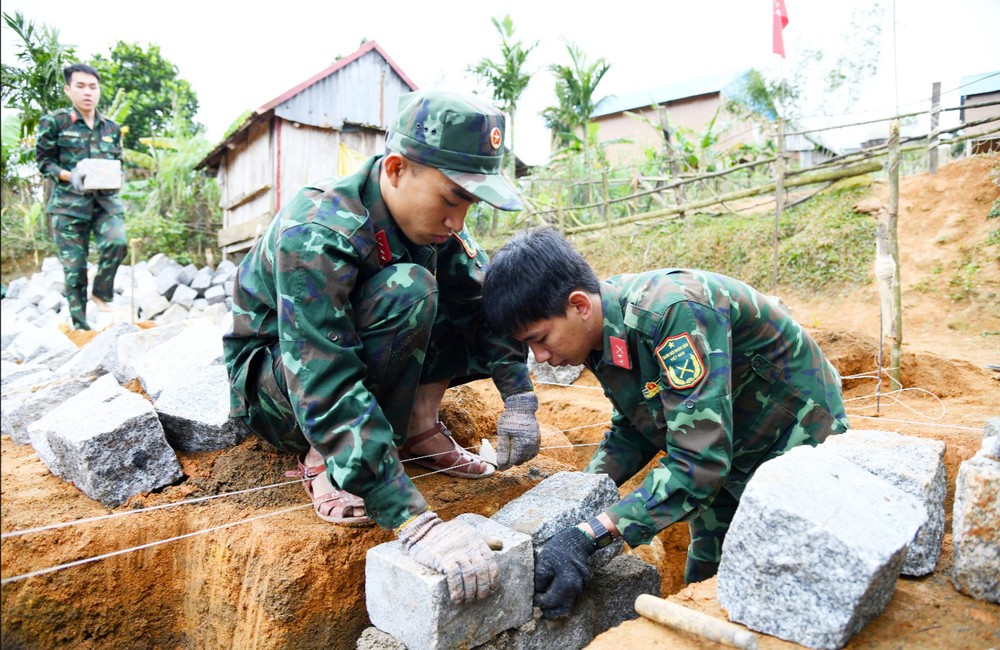
An enduring bond between soldiers and people
In the remote villages of Ka Nau, Kon Lot, Ha Giao, and Chom — all located in Canh Lien Commune, Van Canh District — rows of newly built houses, topped with red tiles or gleaming metal roofs, have recently emerged.
Among the Ba Na ethnic households, the sense of elation remains palpable. For many, receiving a brand-new, neatly finished home from local authorities and military personnel felt nothing short of a miracle.
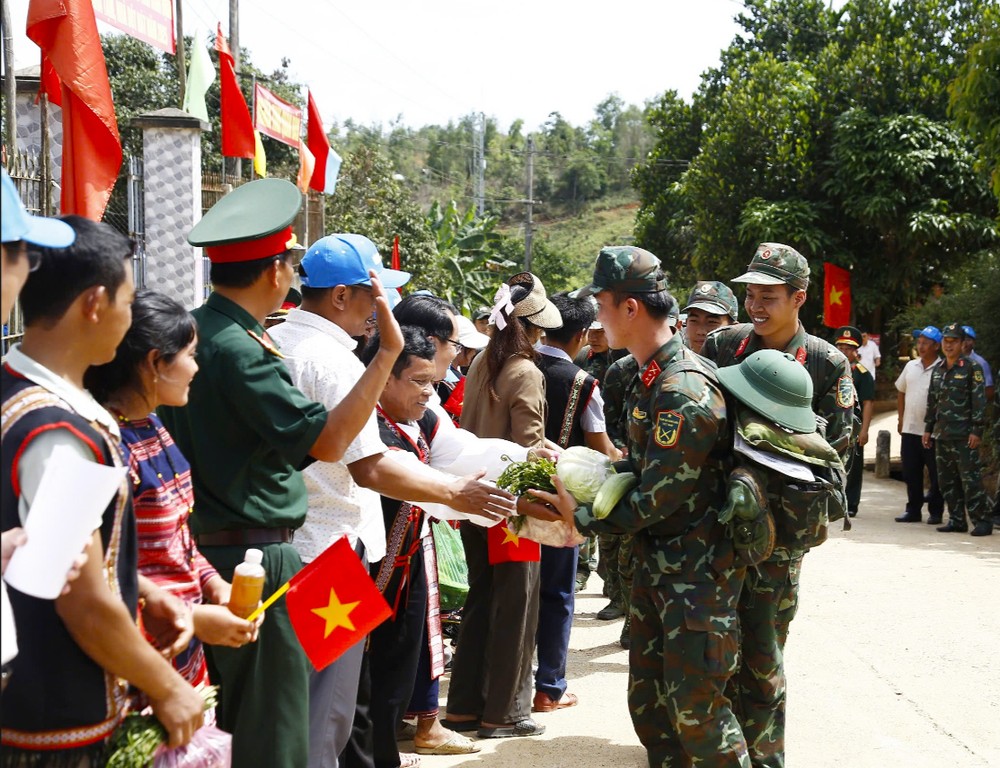
Dinh Van Truc, 53, from Ka Nau village, was overjoyed after his old, ramshackle house was completely rebuilt. “I’m so happy I don’t know what to say,” he shared, beaming. “I’m deeply grateful to the government and the soldiers. Now that I have a proper house, I feel secure and can focus on working hard to improve my life.”
Truc received VND60 million in provincial support, supplemented by personal savings and an additional VND40 million raised by officers and soldiers from the Binh Dinh Provincial Military Command. On the groundbreaking day, dozens of troops arrived to lend a hand — hauling materials, mixing mortar, and even laying bricks themselves. In no time, Truc’s sturdy new home took shape, nestled among the rolling hills.
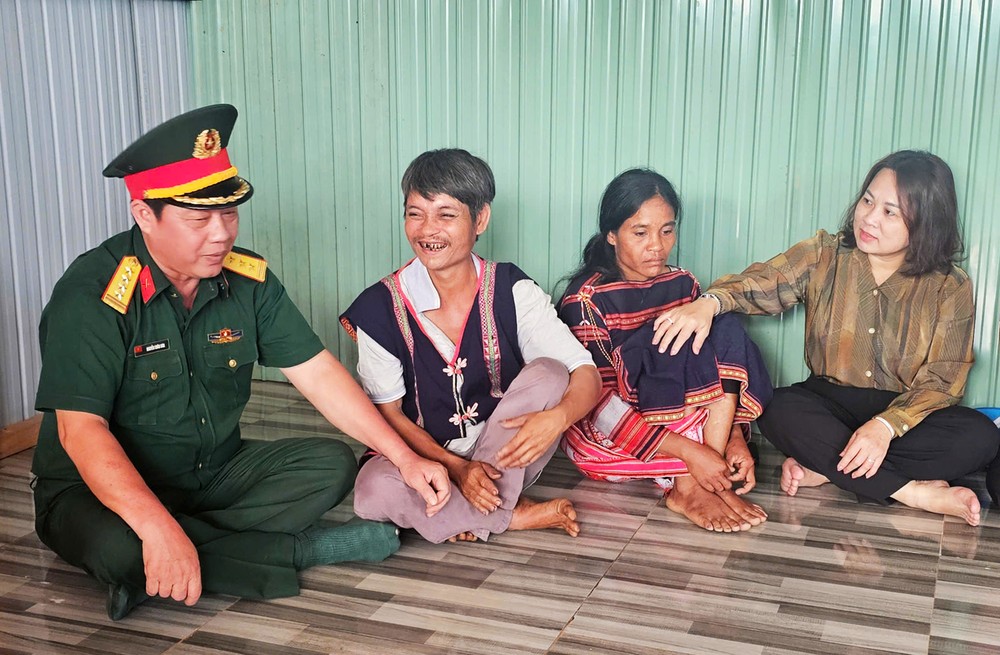
According to Mr. Duong Hiep Hoa, Chairman of the Van Canh District People’s Committee, Canh Lien is perched so high in the mountains that locals call it the “gateway to the sky.” The route to the commune winds through steep, endless slopes, making transportation of construction materials a logistical nightmare.
In 2025, 156 Ba Na households in Canh Lien were in urgent need of new or repaired housing. Recognizing the challenge, the provincial military command stepped in decisively. A forward command post was established, deploying dozens of officers and soldiers to remain stationed in this remote highland outpost, where they supported families in tearing down crumbling structures and erecting new homes.
To ease the burden of logistics, the military mobilized three transport trucks to shuttle construction supplies — at no cost — from the lowlands to the mountains. Over nearly three months, despite heavy rains and treacherous terrain, soldiers contributed more than 2,030 workdays and transported 185 truckloads of materials, totaling over 1,050 tons, to assist 101 households.
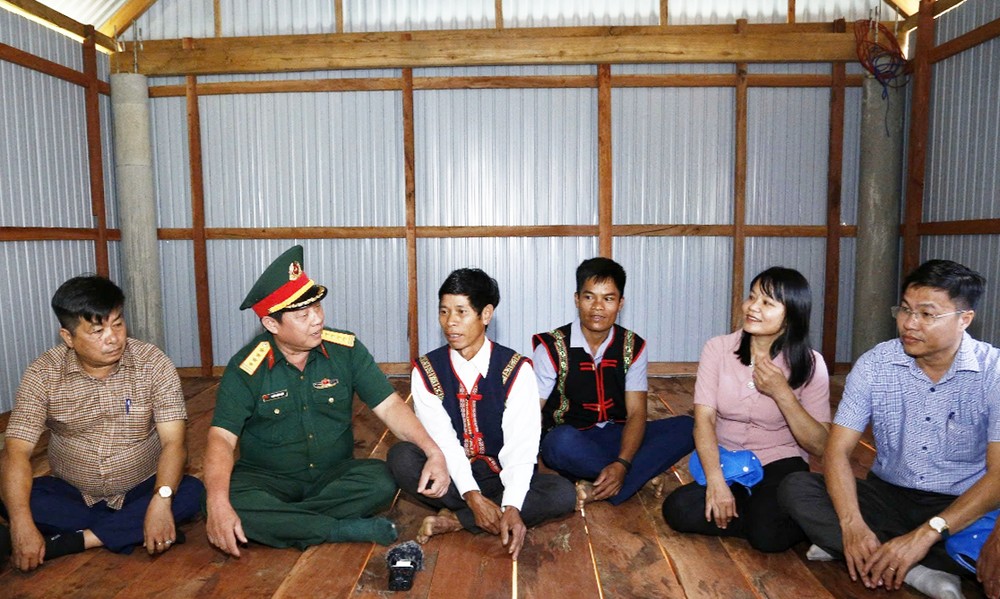
Through weeks of living and working side-by-side with the ethnic minority communities of Canh Lien, military personnel earned heartfelt trust and affection. The operation has become more than a construction effort — it is a powerful reaffirmation of the enduring solidarity between the people and the armed forces.
“This campaign has deepened the bond between the army and the people, like fish and water,” said Colonel Nguyen Xuan Son, Political Commissar of the Binh Dinh Provincial Military Command. “It strengthens the people's confidence, fortifies national unity, and continues to uphold the spirit of 'Uncle Ho’s Soldiers' — military men of the people in the new era.”

Joining efforts, united in will
All 11 districts, towns, and cities across Binh Dinh Province launched a synchronized campaign to eliminate makeshift and dilapidated homes on the morning of February 9, 2025.
This campaign, however, did not begin in 2025. As Binh Dinh Party Secretary Ho Quoc Dung reminded during the groundbreaking ceremony, the initiative was first set in motion in 2019. By the end of 2024, the province had already delivered 5,300 newly built homes. Entering 2025, the goal was even more ambitious: to complete 4,411 more homes in just over 100 days.
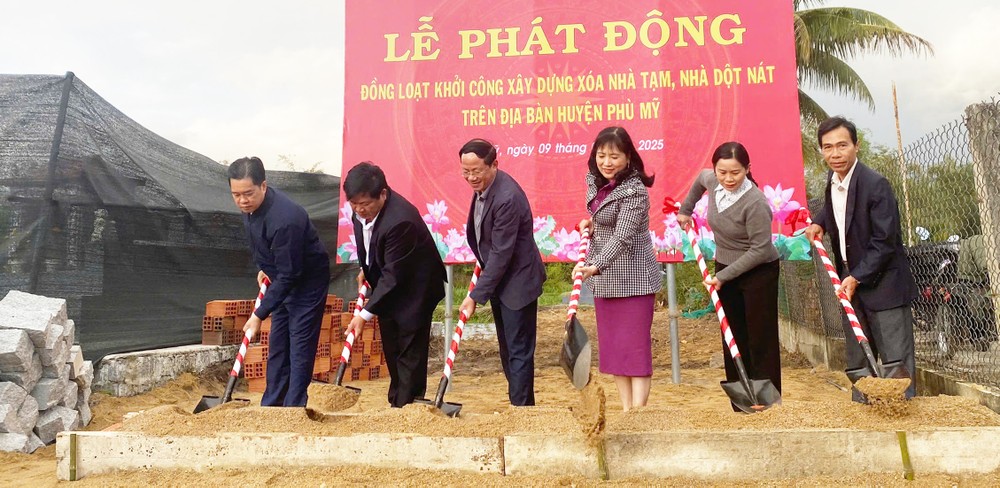
At the campaign’s official launch, Secretary Ho Quoc Dung made the province’s priorities unmistakably clear. “From this moment on,” he said, “localities must treat the elimination of makeshift housing for low-income families and policy beneficiaries as a top priority. No matter the difficulties, we must see this through.”
The road to that goal was anything but smooth. Officials encountered numerous obstacles as they transitioned from planning to action. A senior leader from the provincial Department of Agriculture and Rural Development (now the Department of Agriculture and Environment) recalled how even choosing a date to begin construction proved difficult in some areas. Many communities adhered to strict traditional beliefs when selecting auspicious days for groundbreaking ceremonies. Meanwhile, widespread material shortages and soaring prices created additional pressure on already tight local budgets.
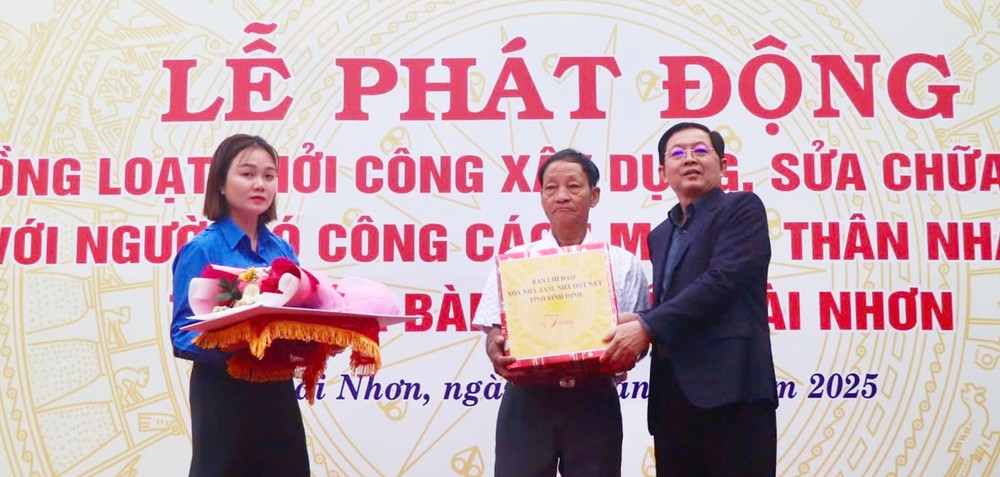
By late March 2025, during the 22nd session of the Binh Dinh Provincial People’s Council, over 1,000 homes were still unfinished. Facing delegates and constituents, Secretary Ho Quoc Dung expressed deep concern and issued a firm directive: district and commune leaders would be held personally accountable for ensuring completion.
Compounding the challenge was a parallel reform mandate from the central government aimed at streamlining public administration. The reorganization left many officials uncertain about their future.
“Some officials were anxious,” Secretary Ho Quoc Dung acknowledged. “They were unsure whether they would still be in office the next day. But I urged everyone to uphold the revolutionary spirit — if we still have a single day left in our roles, we must use it to fulfill our duties. We cannot falter. We must never forget our mission to serve the people and ensure social welfare.”
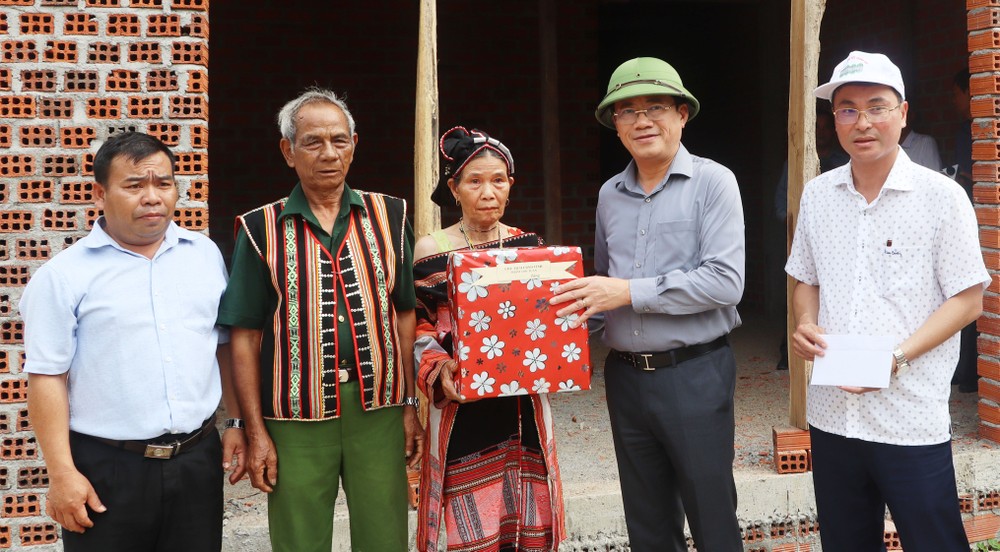
That clarity of purpose and unity in action ultimately prevailed. By mid-May 2025, the last of the 4,411 homes was completed — a remarkable feat made possible by the unwavering commitment of local authorities, military units, and civil society.
Districts like Tay Son and Tuy Phuoc led the charge, setting the pace for the rest of the province. In Phuoc Quang Commune’s flood-prone Pho Trach area, Tran Van Chin was one of many whose lives were transformed. “I was in an accident in 2015 and lost my ability to work. My house had deteriorated badly, and I constantly feared for my wife and children’s safety,” he said emotionally. “Thanks to the State’s support of VND60 million and contributions from others, I was finally able to build a new house. Now I no longer fear the storms and floods. I’ll focus on rebuilding our lives and making sure my children get the education they deserve.”
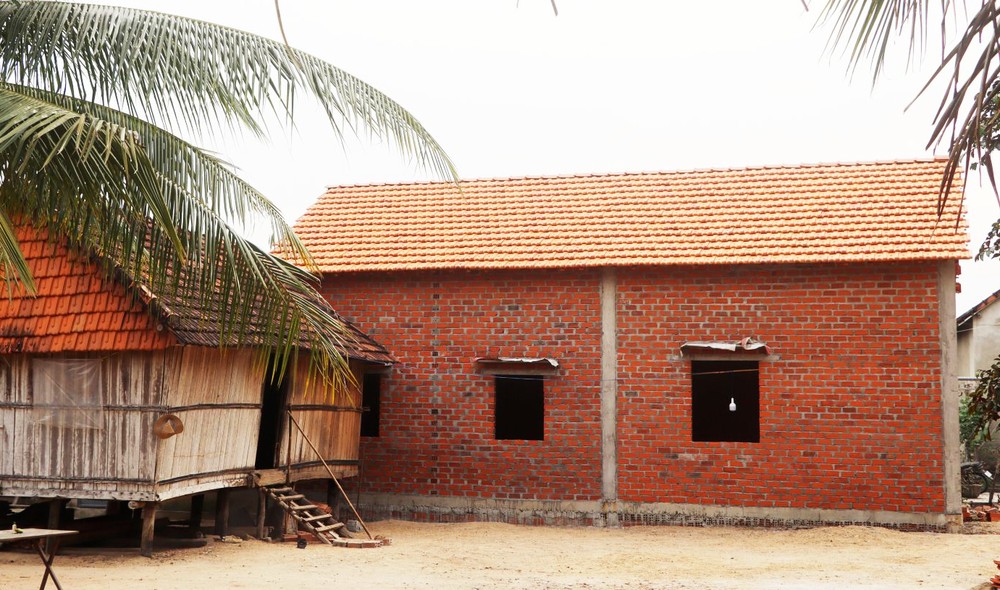
Mission accomplished, thousands of dreams rekindled
According to Binh Dinh Party Secretary Ho Quoc Dung, the province’s success in eliminating makeshift and dilapidated homes was achieved against a backdrop of considerable adversity — not least the simultaneous burden of streamlining the government apparatus, which left many officials grappling with uncertainty and doubt.
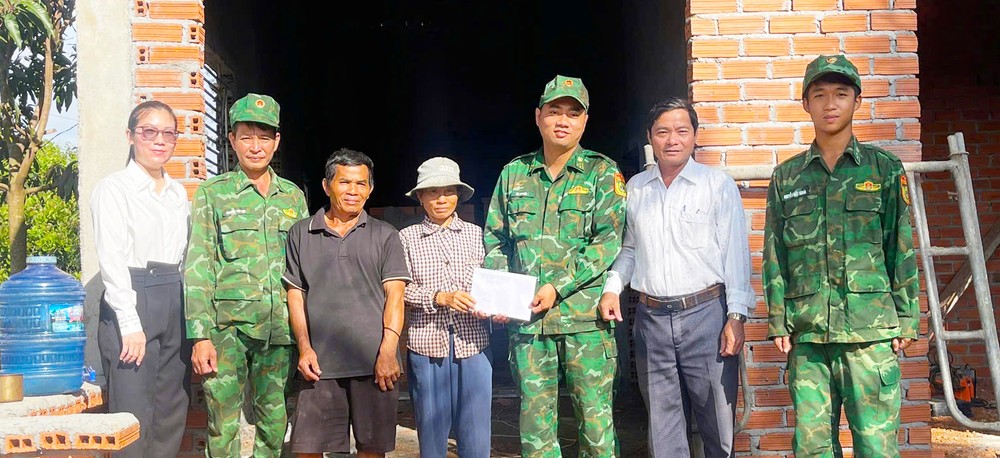
Yet, in the face of these pressures, the province’s entire political system chose to set aside personal concerns and commit fully to what had been defined as the highest priority: eradicating substandard housing for policy beneficiaries and the poor.
“As I have always said, even if we had only one day left, we must use it to fulfill our responsibility — to eliminate makeshift shelters and build dignified homes for our people and those who served the country,” Secretary Ho Quoc Dung declared. “And today, we have done just that. We have fulfilled this historic mission at the grassroots level with distinction — a mission that now concludes not only in success but in profound pride and honor.”

